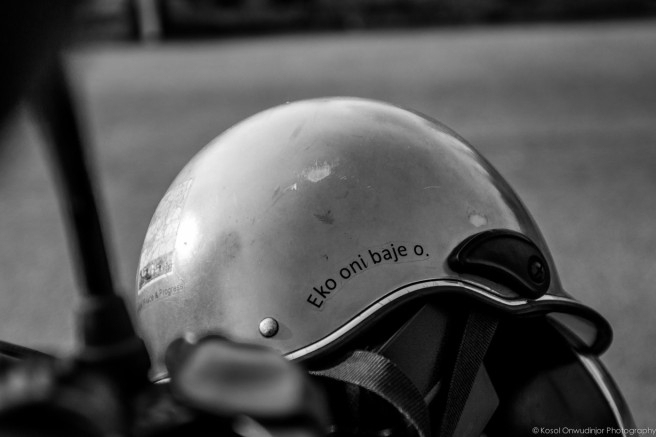A KLM flight to Nigeria begins at the baggage weighing scale at Departure Hall 2. Several passengers drop their luggage on the scale, take note of the weight, nod, and walk away with sure steps. She is surprised that some passengers even weigh their hand luggage.
“What for?” she wonders aloud.
She lugs her first suitcase on the scale. A frown appears. She lugs the second and her frown deepens.
The night before, she had weighed herself, then carried each suitcase and reweighed herself. Then she had repacked and reweighed, repeating this process a few more times, until each suitcase weighed just under 23kg. She had expected a difference between the weight of the suitcases at home and at the airport. But 33kg and 29kg?
She would whistle if she knew how. Instead, she moves her suitcases to the repacking section at the corner and then whips out a folded Ghana bag from her cream handbag. She shakes it lose with one big motion so that the Ghana bag quickly assumes its rectangular shape. She hisses as she kneels on the floor and makes deft work of 16kg, filling up the Ghana bag.
In all her time at Schiphol Airport, she had only ever seen Africans ‘sweating’ at the repacking corner. The problem of course was that expectations—shoes, bags, clothing, and electronics, for family and extended family—carried a lot of weight.
After paying 200 Euros to check in an extra bag, she clears security and passport control before heading for Gate F. At the departure lounge, conversation rises and falls in English, Pidgin, Bini, Yoruba, and Igbo. She could have been at the International Airport in Lagos. Here, she finds comrades with two pieces of cabin luggage, a regular one and another bag which should not qualify as an accessory. In addition, they each have a true accessory, a handbag, a briefcase, a backpack, or something similar.
The cabin crew greet passengers as they stream into the aircraft. No one jostles for room in the overhead baggage compartments. An easy cooperation reigns among passengers as cries of, “don’t worry, there’s space here,” ring out.
Many passengers are already seated and adjusting themselves for the flight, when Mr. and Mrs. X show up. An air hostess reads their boarding passes.
“20E, this way madam, on the left. 16A, sir on the right.”
Mr. and Mrs. X walk down the aisle, stow their hand luggage, and take their places in 20E and 20F. Not long after, the passenger who had been sitting in 20F returns from the toilet.
“Madam, my seat please.”
A small quarrel ensues and an air hostess comes to arbitrate. When she confirms that Mr. X should sit at 16A, chaos occurs.
“You want to separate me from my husband? It is not possible. How can you separate me from my husband?”
“Madam, but your boarding pass—”
“Did you not hear? You cannot separate me from my husband!”
Mr. X coughs, the only sound to escape his lips. The air hostess persuades Mrs. X to vacate the seat. Mr. X accompanies Mrs. X as she follows the air hostess’ lead, dragging their cabin luggage behind him.
“Atink you see this people o? They want to separate me from my husband!”
It is a battle the air hostess should win. The boarding pass says so. But her face is red, every blond hair brushed into place. Her blue suit is devoid of creases, and her voice is no match for Mrs. X’s rising decibel.
The wrangle is drawing some interest, but no mediators. Perhaps it is more expedient to use the time before take-off for selfies and goodbyes. Yes, most passengers are lost in their cell phones and tablets.
The air hostess consults with her colleagues and then they whisper to a few passengers. Before long, they escort Mr. and Mrs. X to a row of seats where they can sit side by side.
Mrs. X declares her victory for all to hear. “Ehen, what God has joined together, let no man put asunder. Ah ah.”
Take off to Lagos begins after this display of survival of the loudest.
She remembers the extra 16kg and 200 Euros and shakes her head. She should have shouted, “You cannot separate me from my luggage!”
©Timi Yeseibo 2016
Unauthorized use and/or duplication of this material without express and written permission from this blog’s author and/or owner is strictly prohibited. Excerpts and links may be used, provided that full and clear credit is given to Timi Yeseibo and livelytwist.wordpress.com with appropriate and specific direction to the original content.






